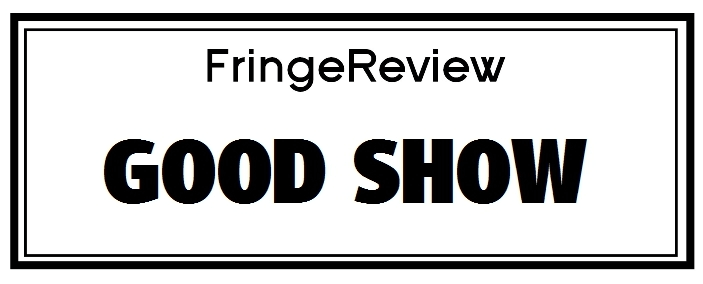FringeReview UK 2018
Maeve Jenkinson, Sarah Davison, Rachel Fryer Schubert Piano Trio No. 1 in Bb, D898
Maeve Jenkinson, Sarah Davison, Rachel Fryer

Genre: Live Music, Music
Venue: Chapel Royal, North Road, Brighton
Festival: FringeReview UK
Low Down
Maeve Jenkinson (violin), Sarah Davison (cello), Rachel Fryer (piano) perform Schubert’s Piano Trio No. 1 in B flat, D898. They’ll be performing it at least twice more this year, with Dvorak’s Dumky Trio and again with Dvorak and Haydn.
Review
Violinist Maeve Jenkinson, cellist Sarah Davison, and pianist Rachel Fryer are the core of the Sussex Chamber ensemble, making a debut with a work they’re de to perform with Dvorak’s Dumky trio at St Luke’s in September.
The Schubert is forty-five unfolding minutes of pure lyricism, the first of his two great piano trios dating from 1827, when he was thirty, a year before his death. In the brilliantly-lit key of B flat it’s a work combining soaring high spirits with searching melancholy in the slow movement. Each of these players prove idiomatic: in Schubert that means a sense of Schubert’s singing line, his occasionally treacherous expansiveness with attention to his pulse and sudden dark shifts.
The opening allegro moderato’s first theme a confident swing full of dotted rhythms, and irregular bar length’s the next’s a song, you could almost swear a soprano one like the later ‘Shepherd on the Rock’. Fryer’s then Jenkinson’s sense of surge and pulling back seem ideal, propulsive not hurried. The development goes off into weird keys, and the stranger less sunny elements of Schubert’s late imaginations edge and nudge here.
The Andante marked un poco mosso so not that slow, is a kind of gondolier’s song. It’s not as haunted as the second great Trio, D929, but inward, searching and a far cry from any lapping barcarolle. Again the trio pace this with the assurance that though it’s not that slow, they’re no fears of exposing drawn-out cantielans, ling violin or cello lines. There’s less for the cello to do earlier but here Davison can shine.
The Scherzo’s an allegro full of heavy dance-music, like Bruckner and (to put it crudely) upper Austrian peasants on the one aide and Dvorak’s Bohemian hair-downs on the other. Each instruments chases the other, imitating even parodying it. It’s a thrilling ride. The violin and piano with Fryer and Jenkinson’s strong accents make a reeling party of it. Their unanimity’s remarkable: you can come unstuck here.
That unanimity’s to the fore in the skeltering finale. The allegro vivace Rondo, with a two-bar rhythm crossing the 2/4 time, everything seemingly off-accent starting on the weak beat but soaring and gathering everything else up as a polonaise-type rhythm in 3/2 interrupts, to the hurtling finish-line.
Fryer’s well-known as a sensitive, idiomatic soloist, deeply versed in musicianship not associated simply with pianism per se. I’ve not encountered this line-up which promises much with future fixtures extending into next year. They’re to be found under Rachel Fryer’s own website. www.rachelfryer.co.uk This is first-class music-making, the kind that persuades you you don’t need to travel up to the Wigmore Hall or wait for the Festival and fringe to enjoy all round music-making of this calibre.


















































